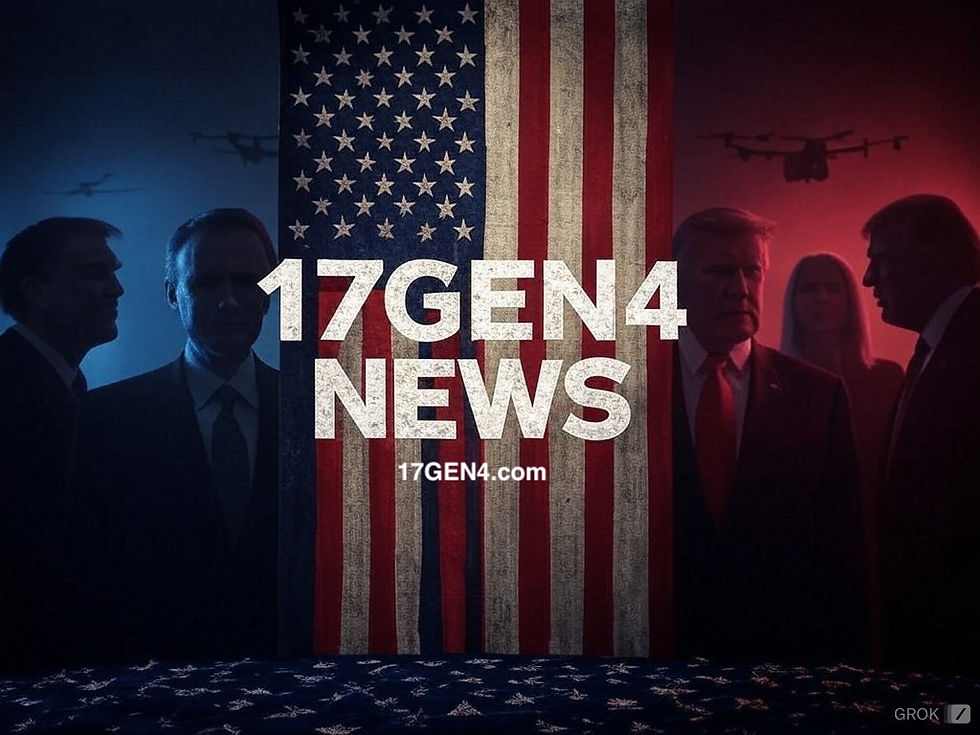Measles in New Jersey - Major US Airport on Red Alert
- 17GEN4

- Apr 24
- 3 min read
NEWARK, NJ — Newark Liberty International Airport, one of the busiest hubs serving the New York-New Jersey metropolitan area, was placed on high alert this week after an infected passenger with measles, described as the world’s most infectious disease, passed through Terminal A on two separate occasions. Health officials are scrambling to notify potentially exposed travelers amid growing concerns over a nationwide surge in measles cases, fueled by declining vaccination rates.
The infected individual was present in Terminal A on March 25 from 3:45 p.m. to 6:15 p.m. and again on March 27 from 2:00 p.m. to 7:00 p.m., according to a statement from New Jersey health authorities. The passenger also visited a Starbucks in Park Ridge, NJ, on March 26 from 6:00 a.m. to 8:30 a.m. and stayed at a nearby Marriott hotel. Officials have urged anyone who was in these locations during those times to monitor for symptoms and contact healthcare providers immediately. No linked infections have been reported so far, but the risk remains high due to measles’ extraordinary contagiousness.
Measles, a highly contagious viral disease, can spread through respiratory droplets that linger in the air for up to two hours after an infected person passes. One patient can infect up to 90% of unvaccinated individuals nearby, making it one of the most transmissible diseases known to science. Symptoms typically begin with fever, cough, and runny nose, followed by a characteristic red rash that spreads from the hairline across the body. While there is no cure, the measles, mumps, and rubella (MMR) vaccine is 97% effective at preventing infection.
This incident marks the latest in a string of measles scares at major U.S. airports. In recent weeks, John F. Kennedy International Airport in New York, Los Angeles International Airport, and Washington Dulles International Airport have all issued alerts after infected travelers passed through their terminals. At JFK, a child traveling from Terminal 4 on a China Airlines shuttle bus to Philadelphia tested positive, while at LAX, two separate cases were reported, one involving a Korean Air flight from Seoul and another on a China Airlines flight. Dulles reported two additional cases this month, with infected passengers visiting baggage claim areas and local hospitals.
The alerts come against the backdrop of a major measles outbreak in West Texas, where 422 people have been infected, and a six-year-old unvaccinated girl became the first U.S. fatality from the disease in a decade. The outbreak has also led to 29 hospitalizations and a second suspected death in New Mexico. Nationwide, measles cases in 2025 have already surpassed the total for 2024, reaching the highest level since 2019.
Experts point to falling vaccination rates as a key driver of the resurgence. The Centers for Disease Control and Prevention (CDC) reports that MMR vaccination coverage among kindergartners dropped to 93% in the 2023-2024 school year, below the 95% threshold needed to prevent outbreaks. In Texas, only 91% of children have received the MMR shot, exacerbated by exemptions for religious reasons. “The best way to protect yourself and stop the spread of this dangerous disease is with the highly effective measles vaccine,” said a CDC spokesperson.
Health officials are working with airlines to contact passengers who may have been exposed, using flight manifests to identify those seated near infected individuals. The CDC’s Traveler Genomic Surveillance Program, which tests wastewater from international flights at four U.S. airports, has been expanded to detect pathogens like measles, though it currently operates at only a fraction of the 333 U.S. airports receiving international travelers.
As the U.S. grapples with this growing public health threat, even prominent vaccine skeptics like Robert F. Kennedy Jr., the new health chief, have urged vaccination. “Get vaccinated,” Kennedy said in a recent statement, a notable shift from his previous stance. For now, travelers passing through Newark and other major airports are advised to verify their vaccination status and remain vigilant for symptoms over the next 21 days.
The situation underscores the fragility of public health in an era of global travel and waning vaccine confidence. With nearly 49 million passengers moving through Newark annually, the potential for rapid spread remains a pressing concern.


Comments